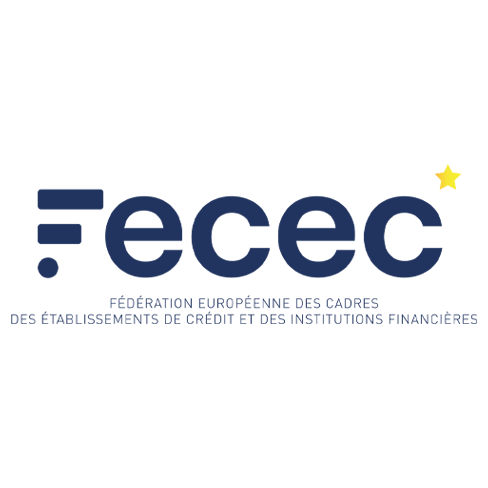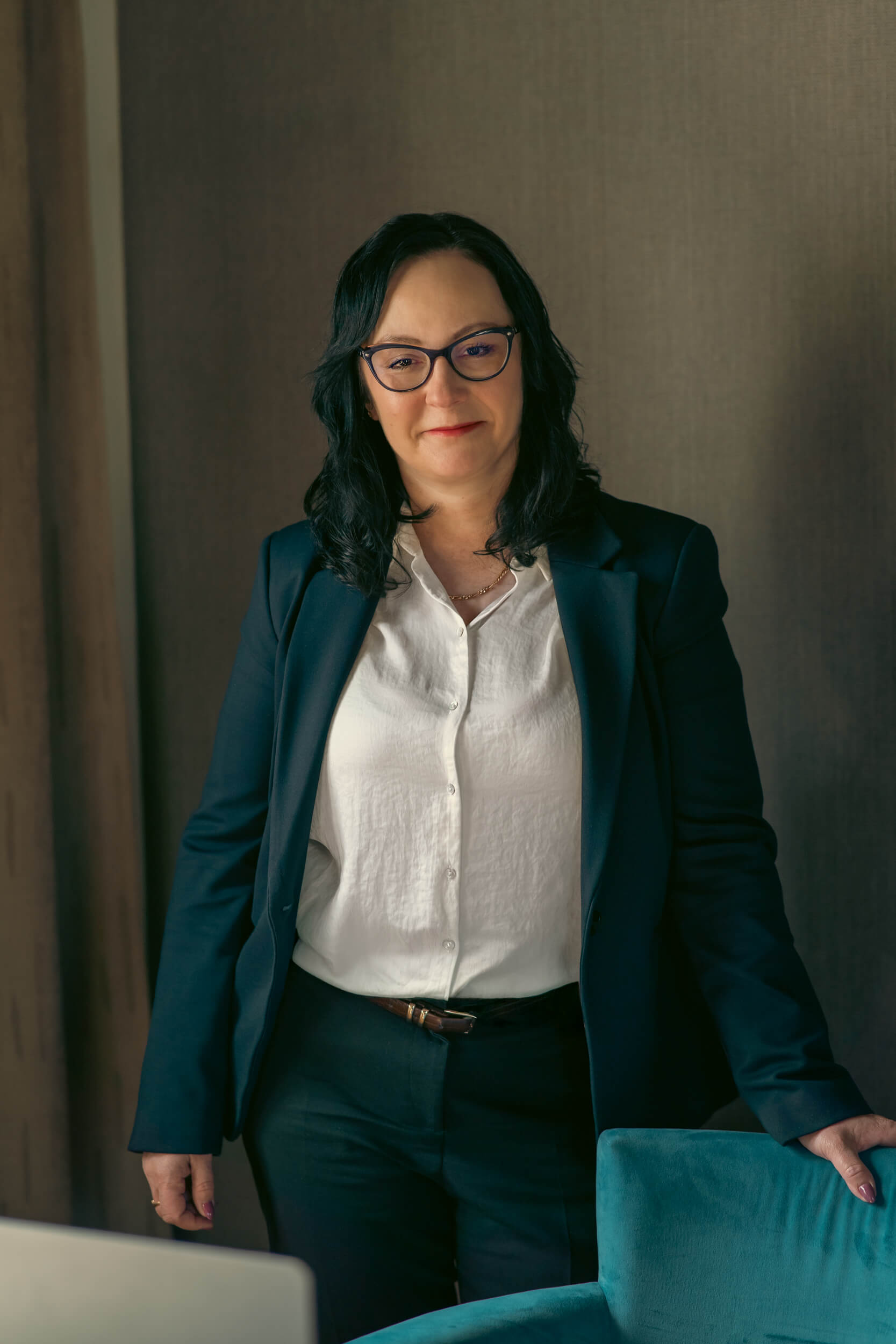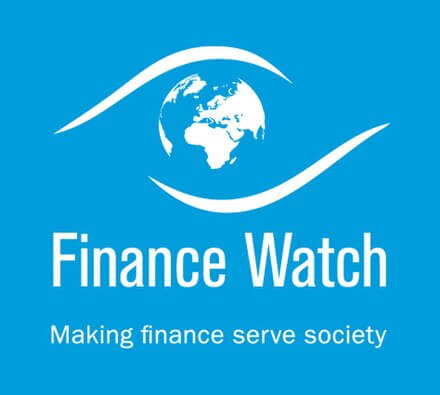Vice President, Mother, Unionist: Anna Oprocha on Wearing Many Hats
On March 12, Anna Oprocha, Vice President of the FECEC Federation, which represents European managers working in the banking sector, visited the offices of CEC European Managers in the European Quarter in Brussels. With her, we could discuss the role of FECEC within CEC European Managers, her professional career as a leader in Poland, and the importance of international collaboration.
How would you like to introduce yourself?
My name is Anna Oprocha. I am from Krakow, Poland, where I live and work. I’m President of Trade Union Dialog 2005 at BNP Paribas Bank Polska.
We are also members of FECEC, the Federation of European Managers in the Banking Sector, of which I am the Vice President. I’m very engaged in my work, especially in gender equality, diversity, and inclusion policy.
Who is Anna Oprocha personally?
I have two sons, a family, and a small dog.
I have also made my professional career an important part of my life, but I have also tried to share my time with my family and my children.
I have invested lots of energy proving I could be a professionally successful woman while being present at home.
Was it very difficult?
It wasn’t easy, but it was possible. Sometimes my children would work with me at the office.
I also had the support of my family, neighbors, sometimes kindergarten, and all the institutions I could engage in.
Why did you start representing managers?
When I became a manager, my task was to organise the work, mobilize people to do more, and often ask my team to work extra hours.
Being a middle manager was very hard.
Top management and my staff pushed me to deliver the scores, developments, and tasks performed.
At the beginning of 2015, BNP Paribas took over Polish Bank BGŻ S.A., and we entered a process of downsizing.
Then, I decided to do something in the trade union to help managers and the rest of the employees face this stressful situation.
I was the unit time manager, responsible for the disbursement of credits and preparing agreements.
We were in a reduction process, so I decided to give the employees a voice and show that leaders and managers have a human face, with needs and expectations, and care about their friends in complicated situations.
By then, nobody was paying attention to managers.
In 2014, we started our activity at BNP Paribas as part of the Polish sectorial Trade Union Dialog 2005, which was a member of FECEC (Fédération Européenne des Cadres de banques et des Établissements de Crédit).
At the same time, Trade Union Dialog 2005 arranged the meeting in Krakow with Maxime Legrand, who helped us organise our trade union’s activity in our bank. We had many problems with that, so his help was very welcome.
What kind of problems did you have?
Our employer did not respect us, so we couldn’t have our office and proper payback. Many small activities in the company had the sole goal of erasing us.
We were apolitical, with contacts with a foreign federation, and we brought a bigger perspective. In 2019, we held our FECEC General Assembly, and I decided to become more engaged.
I was appointed responsible for developing and looking for new contacts at a European level.
With the pandemic, I could not engage face-to-face, but I organised online meetings and sent lots of emails to European trade unions promoting our Federation.
Finally, in 2022, I was elected Vice President of FECEC. We have also launched a small workgroup on Gender Equality and Diversity.
In 2024, I started collaborating with CEC European Managers as a Delegate from FECEC.

What is the particularity of FECEC compared to other member organisations of CEC European Managers?
FECEC is a transnational federation representing managers in Europe’s banking and finance sector.
We have members from Poland, France, Italy, Spain, Belgium, and Portugal. Being part of CEC European Managers provides us with extensive knowledge and expertise from a European trade unionist perspective.
In the Polish labour market, during a negotiation, saying we are part of CEC European Managers gives us a broader view.

What can you tell us about Finance Watch?
FECEC is a co-founder of Finance Watch, a non-profit organisation that controls and protects the public interest in implementing and monitoring European financial regulations. Their work also involves bankers and other finance organisations, and that part of their mission is for profit.
Finance Watch observes, controls, and checks balances to protect the public interest and the people.
What can Finance Watch do for the EU institutions?
Finance Watch provides valuable data and shares opinions when consulted.

What is the specificity of a manager who works in the banking sector?
In the banking sector, trust is the most important thing.
The expectations for a manager working in the banking sector are high.
We have external and internal rules, and many regulations come to us from outside our organisations, mostly from our governments.
In Europe, we all have the same problems and challenges.

What is the main challenge faced by European banks’ leadership?
Digitalisation: Finding new channels of selling, buying, and implementing work automation through AI is stressful for managers. We have to meet many expectations.
How is the banking industry adapting to digitalisation?
It depends on the country. Banks in Poland are on the right track, developing and growing quickly, and having good scores.
Also, in Poland, we are facing local issues, such as a problem with the Swiss franc. Many mortgages were given to people using this currency, and, unfortunately, now people must give back more money than they asked for because the Swiss franc has become more expensive.
What is the most prominent issue managers have to face nowadays?
Deciding over people is always the most challenging thing.
Sometimes, you must conduct complex or tense interviews or deliver hard speeches to your staff.
What is the hardest decision you have ever made?
I had to choose the person who needed to be fired and assess him using legal documentation. It was nobody’s fault, which is why it was so difficult.
I had a wonderful and hardworking team in this particular case, and it was a very difficult decision.
Is it helpful to share decisions with other managers?
We talked a lot with my manager, but most responsibilities were on my side. I was also responsible for organising the final meeting and communicating the bad news.
The European Union is entering a process of “simplification.” We expect less regulation, and in a recent interview (read it here), CEC European Managers’ President Maxime Legrand, said this could be a good opportunity for Social Dialogue. Some polls also seem to show that, in times of political uncertainty, trade unions are seen as the stable organisations needed to defend social rights… What do you think about that?
The right law should be made for the people, not otherwise.
The current situation can be a good opportunity for Social Dialogue.
Regarding Diversity, Equity, and Inclusion (DEI) policies, what is the current situation in Poland?
Officially, DEI policies have been implemented in Poland to fight against the pathological behaviour of not accepting differences between people.
However, everyone has a bias, and changing this mindset takes time.

What are the most common biases for managers working in the banking sector?
Most of our biases become more visible during interviews in the recruitment process; sometimes, the manager labels the person too quickly, for instance, not letting the person introduce him or herself.
Managers review the CVs, and if something appears suspicious, like having changed jobs too often, they tend not to give it a chance.
Also, biases could stop us from building good relations within our teams. Not everybody has the same religion or identifies with the same gender, but if we can create a good working atmosphere, everybody can be more productive.
This is my top priority as a manager.
Have you felt discrimination when trying to build this good working atmosphere?
The most common one has always been “You are a mother, and you should be home taking care of your children.” This kind of bias implies that a woman who is a mother is both bad at work and at raising her kids.
When my children were little, I had to go to the kindergarten and pick up my son, and I’ve heard judgmental comments out loud.
By then, I didn’t think I was being discriminated against because my goal was to finish, take my son, eat dinner together, and try to spend the second part of the day with my family.
Now, I’m sure this was discrimination because maybe some people were jealous that I would have good scores despite my difficult situation if I were single.
Have you ever discriminated against someone?
Not consciously, but I’m sure I overlooked some good CVs and candidates when recruiting people, thinking, “Maybe he is not stable” or “He has too high expectations…”
You participated in the training of the EU project Beyunbi and have shared the campaign #BeyondBias to tackle biases among European leaders. How useful do you think this campaign can be?
I think it is a very useful campaign. We can’t change our past, but we can change the future. Thanks to Beyunbi, I’m a more open-minded person.
I’m 100% sure the BeyondBias campaign can help also other managers because I have tested it on me.
We are in the midst of a debate about the union of skills. Among the ideas to finance it, Roxanna Minzatu mentioned at the EU Social Forum that some financial products could be created to support the upskilling and reskilling of the European workforce. Do you think this would be interesting for banks?
Yes, the banks will be interested. The banking sector also feels a shortage of skills, and upskilling and reskilling are always better than reducing employment.
What would you say to a Polish trade union organisation or association representing managers to convince them to join CEC European Managers?
Just do it, 100%! You will compare your situation with other countries, exchange your views and problems, and, most importantly, feel like you are not alone.
My trade union in Poland, decided to join FECEC so that we could become members of CEC European Managers. And I’m very fond of this decision.





